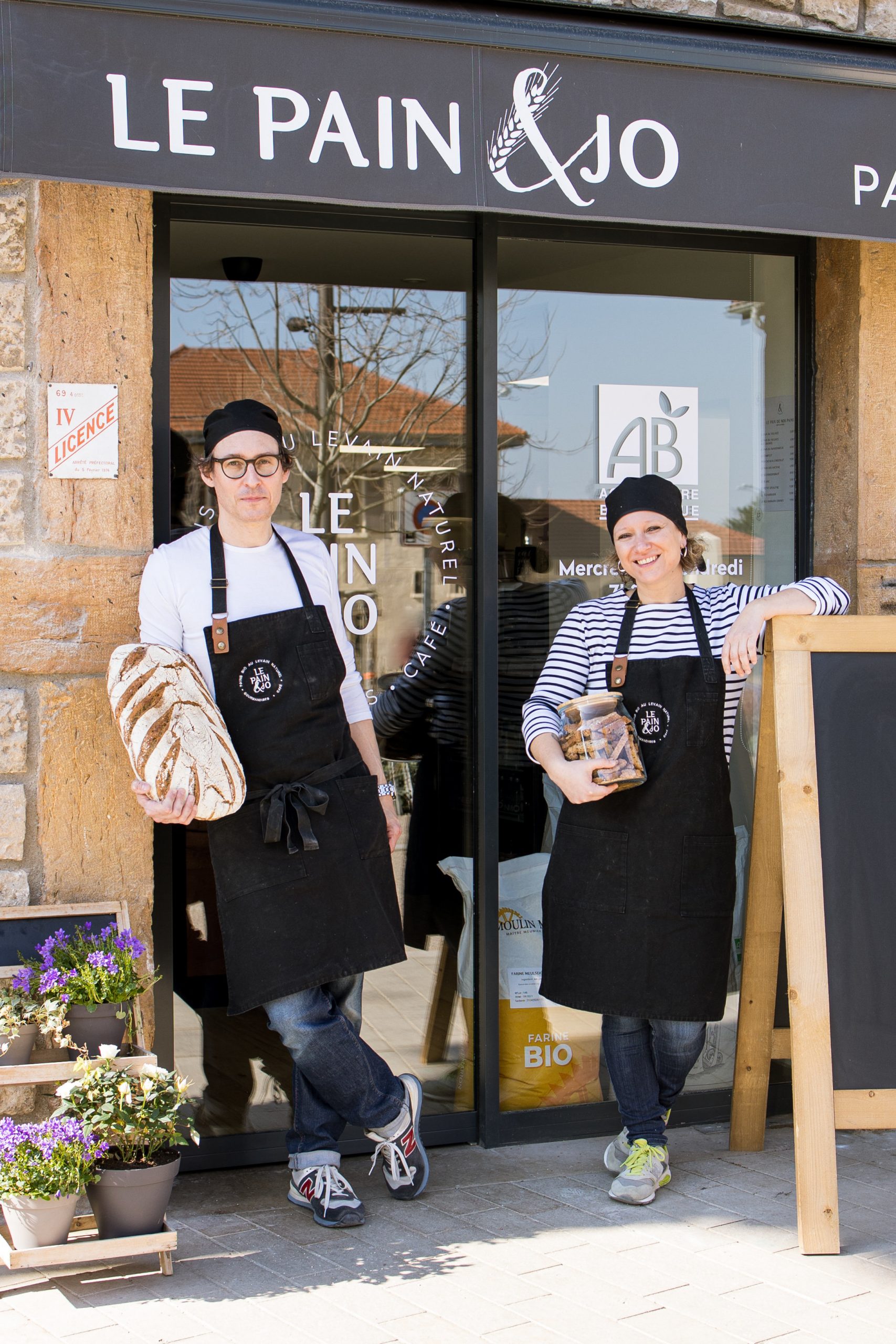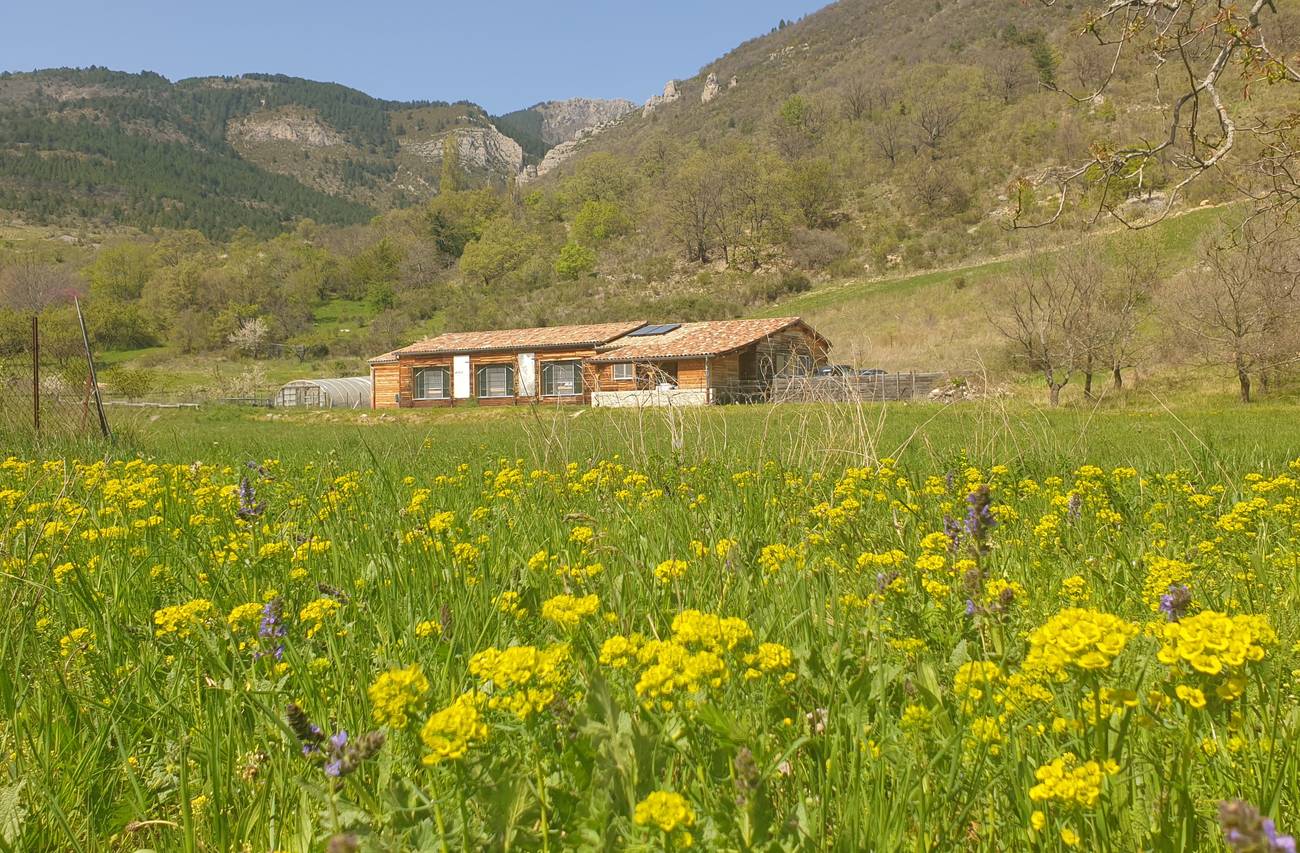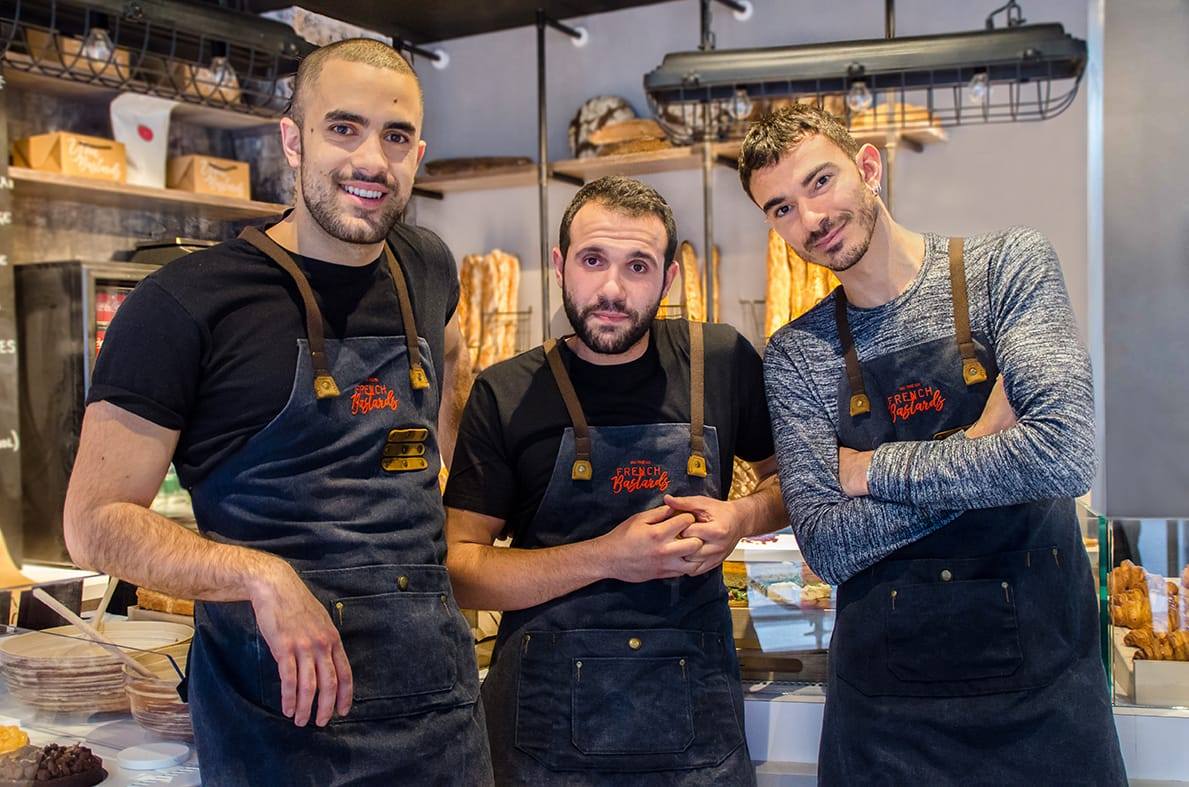Have career changes revolutionized the world of baking?
Text by Rémi Héluin
Cover photo by Felicity Tai
Since the early 2000s, "neo-bakers" have carried the promise of a deep renewal in bread and the treats that go with it. Coming from diverse backgrounds, these individuals were expected to bring skills in management, marketing, or human resources, with both failures and successes along the way. After a noticeable surge during the Covid-19 period, career changes in baking have entered a new phase. Between entrepreneurs and purpose-driven project leaders, the movement is becoming more professional and built to last.
"Getting back to simple, tangible things, and being able to feed our family as well as our village." That was the starting point of the career change made by Ioulia and Frédéric Condroyer, who now run the three Le Pain & Jo bakeries in the Lyon region, a story shared by thousands of former employees and managers from the service sector, all searching for meaning. This wave reached the shores of the bakery and pastry world, but not only there: craft professions, especially those involving manual work, have seen an unprecedented surge in interest. By the end of 2022, it was estimated that nearly 500,000 people in France were in the midst of a life change. For those in the grain-flour-bread sector, this movement brought a welcome business opportunity at a time when the industry was struggling to renew itself. Not only had the number of bakeries been declining (dropping below 30,000 locations by the late 2010s, according to some observers), but the face of the profession seemed stuck in the past.
While millers and business brokers were pleased to find new buyers for the bakeries in their portfolios, training centers saw an opportunity to expand beyond apprenticeships and traditional programs. The CAP Boulanger diploma began to be offered for several thousand euros, providing project initiators with the key qualification needed to open or take over a bakery of their own.
Founded in 1976, the Institut National de la Boulangerie-Pâtisserie (INBP) in Rouen (Seine-Maritime) was among the first to adopt this new format, generally condensed into three to four months. The Covid-19 pandemic, along with government support, sparked a wave of new vocations.
However, that wave proved short-lived. Since the end of the lockdowns, reconversion activity at the INBP has dropped fourfold, due in part to the regionalization of funding available for individuals changing careers. Competition between centers has also intensified, with the arrival of prestigious names such as École Lenôtre and École Ducasse, which are able to attract an international audience and candidates drawn to the world of gastronomy.
Success stories vs. everyday reality, the double truth of career change

© Eilean et Jules Photographie
Beyond the financial aspect, the widely publicized difficulties in the sector, including a particularly intense energy crisis in 2023 followed by a spike in the prices of raw materials (flour, chocolate, butter, sugar…), have discouraged many aspiring bakers. Contrary to the common belief held by many would-be career changers, baking no longer yields the kind of income that justifies the human investment involved, or at least not easily. This superficial view of the profession has led many projects to fail. Behind the success stories of figures like Christophe Vasseur (Du Pain et des Idées, Paris and Saint-Jean-de-Luz) or the duo Victoria Effantin and Cécile Khayat (Mamiche), many “dreamers” have come up against the tough daily reality of running such a business, a reality rarely covered in accelerated training programs. It was precisely this pitfall that Ioulia and Frédéric Condroyer wanted to avoid before setting up shop. “Frédéric trained at the L’aura school, near Valence, where the focus is on hands-on practice to build efficiency. We completed the program at the École Internationale de Boulangerie, then did numerous internships in both conventional and more mission-driven bakeries to refine our understanding of the craft,” recalls Ioulia Condroyer. This pragmatic approach allowed them to confirm their intentions, such as working with natural sourdough and using organic flours, while also developing a product line centered on indulgence. “Childhood memories, the joy of snack time and viennoiseries, and discoveries from our travels are at the heart of what we offer.” Striking a balance between the abundance of a typical neighborhood bakery and the strict standards upheld by certain bread “purists,” Le Pain & Jo has found its place in Morancé, Villefranche-sur-Saône, and Dardilly (Rhône). The couple represents a more thoughtful approach to career change, with a deep understanding of the core principles of the trade.

© Ecole Internationale de Boulangerie
In Noyers-sur-Jabron (Alpes-de-Haute-Provence), the École Internationale de Boulangerie, led by Thomas Teffri-Chambelland, has built its success on this very model. Here, future bakers are supported not only in production techniques (focused on organic bread made with natural sourdough) but also in the business side, with the creation of a bakery business plan integrated directly into the training. Lilian and Bruno Bernardin (Le B), Paulin Leuridan (Pain Paulin), Ludovic Olivier-Cambianica (Maison Deschamps) are just a few names among the 200 openings claimed by the school since 2007. Together, they form a powerful network helping to reshape the face of baking, reconnecting it to its roots while taking the risk of disappointing customers used to baguettes, pastries, and other treats… and potentially contributing to a standardization of practices. Success and economic realities can push some to go further than they had imagined. “Frédéric wanted to bake bread in sandals while looking out over the Beaujolais vineyards,” says Ioulia Condroyer with a smile. “We got swept up in it, driven by our customers’ loyalty and faced with a simple truth: you have to sell a lot of bread to make money and have a comfortable life.” It’s a reality some “de-converts” can relate to, having returned to their previous careers after a rocky experience in the bakery world.
Entrepreneurs at the helm, reimagining bakery “2.0”

© The French Bastards
While crises create challenges, they also open the door to new opportunities. That’s the belief driving a new wave of bread entrepreneurs, career changers whose visibility continues to grow. Jean-François Bandet and Magali Szekula (BO&MIE), Julien Abourmad, Emmanuel Gunther and David Abehsera (The French Bastards), or Thibault Pillet and Louis Lepicard (Emma Boulangerie) are all thinking big: each of their brands has passed the five-store mark, expanding well beyond their Parisian or Nantes bases. With increasingly powerful brands and store concepts that break sharply from the industry’s traditions, these newcomers are betting on accelerating the transformation of the baking profession, without even putting their hands in the dough. That’s the opposite path taken by other equally bold professionals, such as Marie-Cécile Geulin. After a career in sales, including time at Danone and Coca-Cola, she and her brother took over the family business to develop on-site grain transformation into bread and pasta. Named L’Atelier d’Eugène, the company has been selling its products at markets in Normandy since summer 2023. It’s this tension between commitment and entrepreneurship that perhaps best defines the new face of professional reinvention, one that still has to prove its ability to truly revolutionize the world of baking.